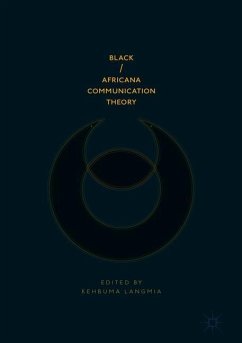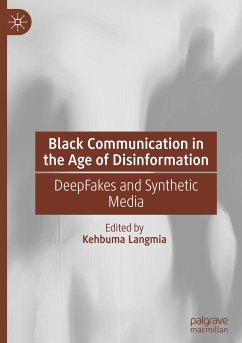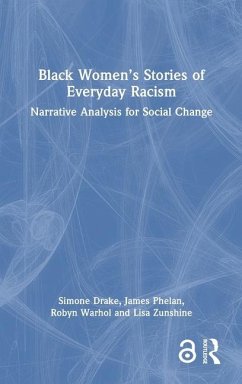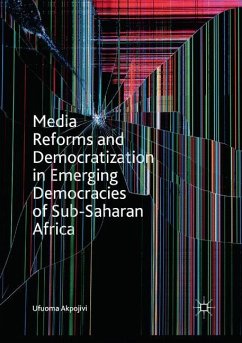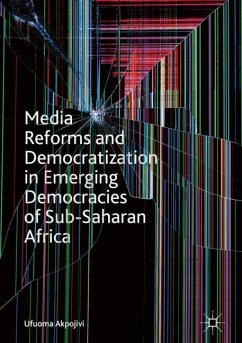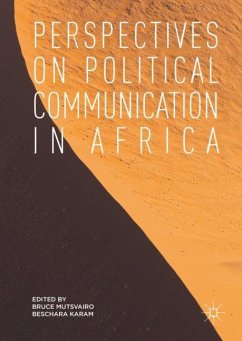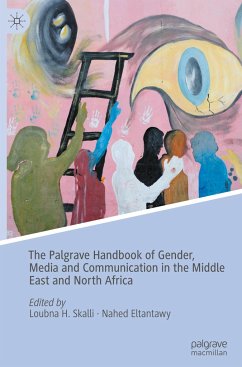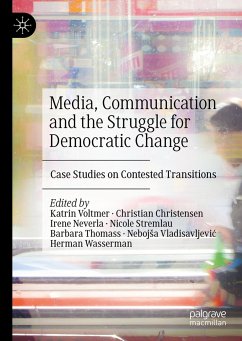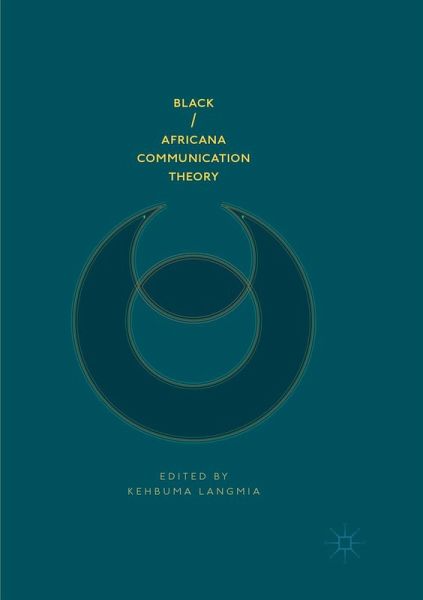
Black/Africana Communication Theory
Versandkostenfrei!
Versandfertig in 6-10 Tagen
121,99 €
inkl. MwSt.

PAYBACK Punkte
61 °P sammeln!
Most Western-driven theories do not have a place in Black communicative experience, especially in Africa. Many scholars interested in articulating and interrogating Black communication scholarship are therefore at the crossroads of either having to use Western-driven theory to explain a Black communication dynamic, or have to use hypothetical rules to achieve their objectives, since they cannot find compelling Black communication theories to use as reference. Colonization and the African slave trade brought with it assimilationist tendencies that have dealt a serious blow on the cognition of m...
Most Western-driven theories do not have a place in Black communicative experience, especially in Africa. Many scholars interested in articulating and interrogating Black communication scholarship are therefore at the crossroads of either having to use Western-driven theory to explain a Black communication dynamic, or have to use hypothetical rules to achieve their objectives, since they cannot find compelling Black communication theories to use as reference. Colonization and the African slave trade brought with it assimilationist tendencies that have dealt a serious blow on the cognition of most Blacks on the continent and abroad. As a result, their interpersonal as well as in-group dialogic communication had witnessed dramatic shifts.
Black/Africana Communication Theory assembles skilled communicologists who propose uniquely Black-driven theories that stand the test of time. Throughout the volume's fifteen chapters theories including but not limited to Afrocentricity, Afro-Cultural Mulatto, Venerative Speech Theory, Africana Symbolic Contextualism Theory, HaramBuntu-Government-Diaspora Communications Theory, Consciencist Communication Theory and Racial Democracy Effect Theory are introduced and discussed.
Black/Africana Communication Theory assembles skilled communicologists who propose uniquely Black-driven theories that stand the test of time. Throughout the volume's fifteen chapters theories including but not limited to Afrocentricity, Afro-Cultural Mulatto, Venerative Speech Theory, Africana Symbolic Contextualism Theory, HaramBuntu-Government-Diaspora Communications Theory, Consciencist Communication Theory and Racial Democracy Effect Theory are introduced and discussed.



